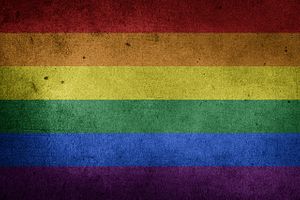On September 14, 2019, on a sunny Saturday afternoon in Ho Chi Minh city, Nguyen Hue street was busy as normal, attracting hundreds of tourists. But something was different about that day: the street was holding an annual event called VietPride to promote equality, freedom, and tolerance for the Vietnamese LGBT community. Many LGBT Vietnamese, along with their family and friends as well as foreign visitors, dressed in colorful shirts to march. Same-sex couples held up banners calling for “Freedom. Equality. Tolerance.”
For many years, parts of the LGBT community have continued to protest vociferously against perceived injustices and prejudice in the society. These protests frequently achieved some change, but sadly the effects did not extend beyond the surface level. Although Vietnam has been praised as an Asian leader in LGBT rights since 2015, a recent report from Human Right Watch raised the alarm about the ongoing problems of prejudice, discrimination, and stigma facing the community in Vietnam.
It’s worth looking back at what happened to lead us to this point.
The LGBT community in Vietnam was largely underground in the past because the state media had declared homosexuality a social evil. In 2010, the Vietnam Institute for Studies of Society, Economy and Environment conducted a survey that found that “87 percent of participants did not fully understand LGBT concerns and rights or had a very limited understanding of LGBT rights.” These misunderstandings about and prejudice against the LGBT community directly resulted in discrimination, harassment, and stigma in the Vietnamese society.
In July 2012, the Vietnamese government began a consultation over whether to allow same-sex marriage. In 2013, the Ministry of Justice submitted a marriage and family bill that would provide some rights to same-sex couples and allow same-sex marriage, implementing the 1992 Law on Marriage and Family. The Vietnam National Assembly voted in favor of the bill on June 19, 2014. The amendments to the Law on Marriage and Family 2014 came into effect in January 2015. This was an important stepping stone, paving the way for gay marriage.
But there is a major flaw in the law. According to Clause 2, Article 8 of the new law, although it allows same-sex weddings, such couples are neither recognized nor protected under the law. Although Vietnam abolished its ban on same-sex marriage, the law has a very limited effect in practice. If not recognized by the state, such marriages will not be protected by law for matters such as personal and property rights.
In addition, the broader journey for equality is not easy. Members of the LGBT community in Vietnam often face discrimination from their families and workplace, as well as social stigmas and prejudice in schools and hospitals. The perceived prejudice and discrimination directed toward LGBT people is part of a more severe interpretation of conservative Vietnamese culture, based on the traditional perception of sexual orientation and gender identity.
This deep-seated prejudice causes many LGBT people live with depression, even sometimes leading to suicide. In January 2020, according to an article of the Vietnam Bar Association Agency, a young couple committed suicide in a motel in Hanoi, reportedly driven to desperation over pressure from their families. The tragic case was an alarm bell that something is still deeply wrong with society’s approach to the LGBT community.
LGBT rights are basic human rights. Vietnam’s LGBT people are also citizens and have legitimate rights. But while Vietnam has paid some lip service to equality and respect for the LGBT community, the vast majority of LGBT people still face discrimination and great pressure. To give just one example, LGBT students face discrimination and even violence at their schools, as a 2014 USAID report notes:
54 percent of participants reported that their school was not safe for LGBT students… 43 percent of students experiencing violence could not maintain their performance and some had to drop out. One-third of those who experienced violence at school thought about committing suicide, while half of those had attempted suicide. Transgender students fare much worst [sic]. 85 percent of male-to-female transgender students drop out and are not able to graduate from secondary schools because of assaults and bullying
The Vietnamese government has committed to tackle punitive attacks on the LGBT community, knowing that equality is a social good. But the issue goes far beyond the government’s action so far and has profound implications for the future of the Vietnamese LGBT society.
Prejudice, discrimination and stigma against the LGBT community in Vietnam still looms large. To overcome this will require a decisive response not only from the Vietnamese government, but from the LGBT community too.
It’s time for Vietnam to stop pledging its allegiance to equality and plan concrete actions. The LGBT people who have suffered from prejudice need protection and sympathy from society. LGBT activists should also do their part to raise social awareness and explain some of the fundamental misunderstandings that contribute to human rights violations against LGBT people in the Vietnam community.
Education can play a good role in raising awareness of the LGBT community. LGBT students commonly face verbal harassment in Vietnamese schools; hence, it is urgent to have specific measures to prevent and combat harassment and discrimination in schools. The Vietnamese schools should also openly acknowledge the presence of LGBT figures in history. Several studies have concluded that anti-gay sentiments are not inherent but established in the early years. When LGBT history is acknowledged, young people do not feel the same need to exclude and bully children whose sexuality differs from their own.
I would argue that a flourishing LGBT community is crucial to a nation’s culture. Ignoring the importance of LGBT rights, and the continuing violence and lack of social awareness facing the LGBT community, is a big error Vietnam will pay for.
Vietnam should raise its creativity and start acting now. It is a battle that will help determine the future of the LGBT community in Vietnam for years to come.

































